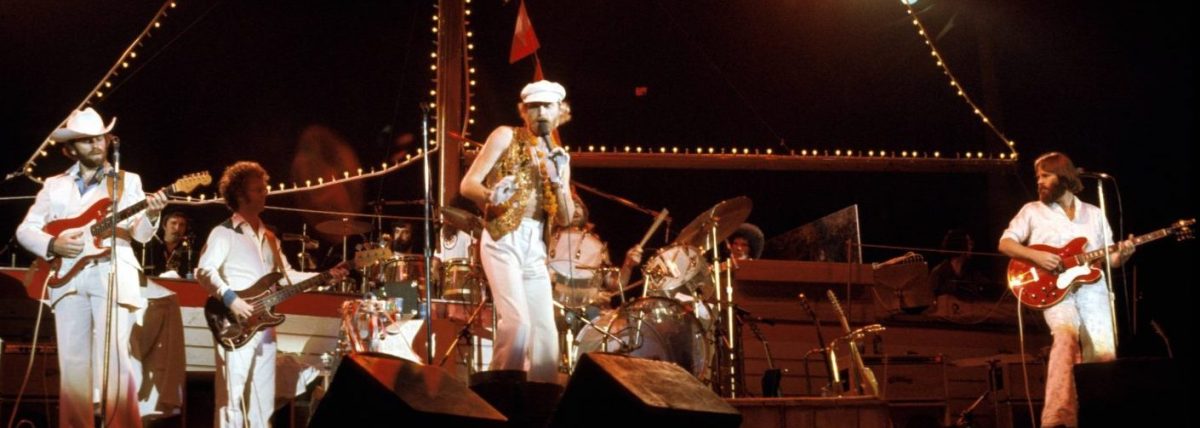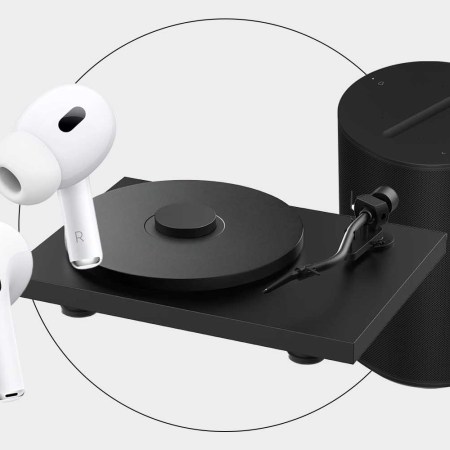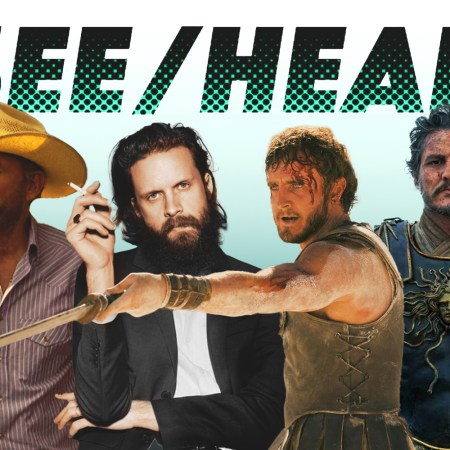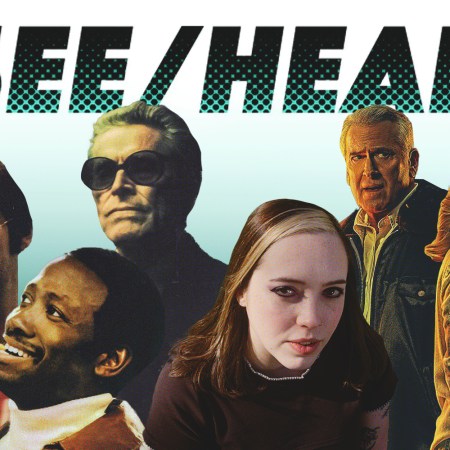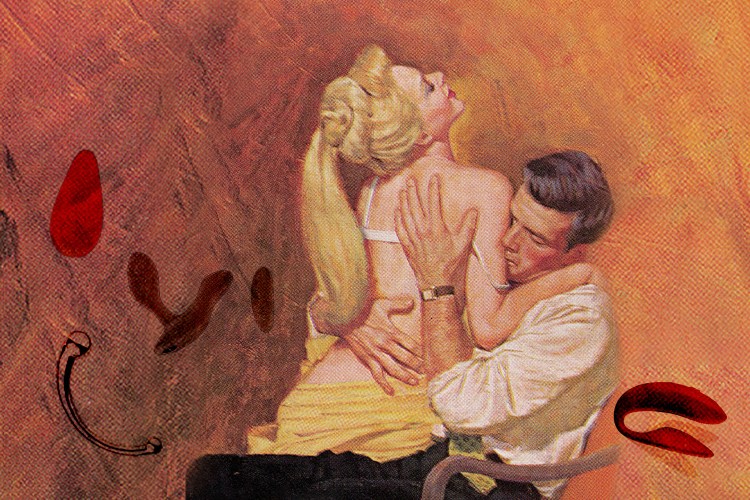There is music that is clever, inventive and deliberate, full of the arched eyebrows of ingenuity and the sly smile of skill.
And then there is music that unchills your heart, music that makes a direct connection with your hopes, dreams, joys, and fears.
Reach my heart, then tell me how brilliant you are.
This is why, I am quite certain, I prefer Elliot Smith to Paul Simon, Fred Neil to Duncan Sheik, Charles Ives to Leonard Bernstein, the Durutti Column to Dire Straits; these artists created sound and music out of those moments just before tears happen, each of these artists access the marrow of the soul, not just the colorful dyes of expertly cut clothes.
And this is why I prefer the Beach Boys to the Beatles.
The Beach Boys, again and again, went to the market where goosebumps were bought and sold.
Listen, listen, with your heart, to “Wouldn’t It Be Nice”: How it wraps around you and before you know it, it is inside of you, it is a child wearing it’s daddy’s shoes dancing gossamer two-steps with the stereocilia of your ears. The Beatles, precise and witty geniuses, never made anything quite like this. The Beatles made amazing wedding cakes, startling architecture that reached for the sky in crystalline spires and sugary crenellations; they scraped the clouds but they rarely touched heaven. The Beach Boys touched heaven again and again, the starting place for their music is where the soul soars through its scars and reaches a place beyond age, a place that references the mysteries of childhood and the fears of adulthood, a place that has the sepia tones of the past and the aqua-opalescence of Atlantis.
Some fail to see the whole picture with the Beach Boys. They become distracted by a handful of extreme creative achievements and a few newsworthy (and almost universally misunderstood) tragedies, failures, and lawsuits. Sometimes, I think we undervalue the Beach Boys just because they persevered: Imagine, just imagine, how different the Beatles story would be if they had continued to record into the 70s, ‘80s, ‘90s and beyond, and soldiered on as key members died or left (as, say, the Beach Boys, Stones, and Who have). Think: Would we have eventually cared as little about a new Beatles single as we cared about, say, Wire and Glass from the Who or A Bigger Bang by the Stones?
In fact, the Beach Boys story is incredible.
As early as 1963, when others were just trying to, well, improve on the Everly Brothers and Buddy Holly, the Beach Boys were creating pop that defied gravity and turned song into the servant of imagination and emotion (my god, listen to “Farmers Daughter,” “The Lonely Sea,” and “Your Summer Dream”). Just half a year later (and the release of Shut Down Volume 2) they have already reached a place of musical elaboration in the service of feeling that the Beatles wouldn’t reach for another eighteen months (“The Warmth of the Sun,” “Don’t Worry Baby,” “Fun Fun Fun,” this stuff is absolutely high on human possibility). The Beach Boys next four studio albums (All Summer Long, The Beach Boys Today, Summer Days (and Summer Nights!!, and Pet Sounds) achieve a kind of electric pop transcendence: you are looking, truly, at the near-perfectly realized pop opera of teenage American life, and seen as one piece, these three albums could be the American Quadrophenia (seriously, man, I’ll write about that sometime). True, SMiLE famously collapsed, but the story doesn’t end there: The Beach Boys, humbled by events but buoyed by an extraordinary combination of character and talent, moved on virtually without pause to the greater variety and vulnerability of Smiley Smile, Wild Honey, Sunflower, 20/20, Surf’s Up, and Holland, each of which are essential albums.
Right before the end of 2017, three new Beach Boys-related releases fell into our world; and each is a revelation, each is worth your time, and each adds to the story of Our Greatest Band.
Two of these are unanticipated addendums to 1967 – Sunshine Tomorrow (which was released this past June). 1967 Sunshine Tomorrow was a fascinating and often beautiful overview of everything the Beach Boys did in 1967, including scraps of the doomed and ecstatic SMiLE, Smiley Smile alternate takes and mixes, the first true stereo release of Wild Honey, and the first authorized release of the unique and peculiar Lei’d in Hawaii live album (this author’s review of the album for the LA Weekly can be found here.) Just a few months later, just as winter beckons us to its sunless beaches, we welcome – and I do mean welcome – the release of Sunshine Tomorrow 2: The Studio Sessions and Live Sunshine – 1967.
Generally, this sort of overkill is hugely unnecessary (I am someone who finds even the Sgt. Pepper’s addendum of the last few years largely trivial and diminishing of the adamantine qualities of the original “mother” recording), but both Sunshine Tomorrow 2 and Live Sunshine are great surprises. Unlike virtually all archival/outtake releases (by any artist), both new collections make for fulfilling and valid listening experiences entirely on their own, even without any backstory, liner notes, and geeky ephemera.
The Studio Sessions, especially, is strange and beautiful. In fact, I’d go as far as to say it’s superior to the initial Sunshine Tomorrow collection: it is more joyful, more elegiac, more revealing, and more complete. Not only does it shows a non-pareil band at a fascinating state of transition, it also shows that the Beach Boys, even as they were left humbled by the collapse of SMiLE, had the tools, the originality, and the will to emerge from the chaos and controversy with their unique gifts and emotional reach not just intact but evolved.
The Studio Sessions is a mixture of vocal-only takes from Smiley Smile and Wild Honey, plus instrumentals, alternate mixes, and session excerpts. Virtually alone amongst pop groups, the Beach Boys vocal-only tracks make complete and enchanting sense – you will likely be floored by the opener, a vocal-only “Heroes and Villains,” and you probably won’t get up from there; and the instrumental take of “Time To Get Alone” is damn close to a masterpiece, and merits a place on any Beach Boys’ greatest mixtape.
1967 Live Sunshine, which features rehearsals and performances from around the time of Lei’d in Hawaii, finds the Beach Boys attempting to apply the minimalism of Smiley Smile (and much of Wild Honey) and its almost Village Green-ish sense of detachment from the elaboration of modern psychedelia to live performance. At times, the music is barely there, and the band sounds as if they are on a tightrope of nerve, loss, and hope; imagine Young Marble Giants, Tim Buckley, or (acoustic) Elliot Smith playing their versions of the band’s Spectorian hits. It is deeply vulnerable, revealing, and moving.
All in all, if we take a “big picture” view of the Beach Boys in 1966 and 1967 – something the three Sunshine collections encourage – we see a group transitioning from the elaborate teen audio dramas of Pet Sounds (and the work that precedes it) into an ensemble trying to re-invent both themselves and the whole idea of American pop. The circa-’67 Beach Boys did this by blending back porch minimalism, Nelson Riddle maximalism, Korla Pandit exoticism, Laurel Canyon pastoralism, and John Cage whimsy and invention. This story is expertly told via the three Sunshine Tomorrow albums. Get them all if you care about the Beach Boys and American music.
On top of it all, November saw the release of a Mike Love solo album that not only is absolute pleasure, but also evokes the spirit and soul of the Beach Boys in a true and valid manner. On Unleash the Love, Mike Love reveals both a sensitive and pragmatic soul; he has an engaging, undeniable knack (both intuitive and learned at the feet of one of the great masters of pop music) for combining simple, almost singsong melodies with graceful, elegant music and arrangements that have a nearly artful ambience. Without hesitation, I’d say that about half of Love’s album is better than anything either Brian Wilson (as a solo artist) or the Beach Boys have recorded in decades: “Ram Raj,” “Only One Earth,” “Crescent Moon,” and the affecting George Harrison tribute, “Pisces Brother” have a warm and engaging sway and seem to reach deeper into the heart then the waxworks’ Cetera-isms on either the Beach Boys’ 2012 reunion album or Brian Wilson’s most recent solo LP. In fact, the album continually reminds me of the persuasive, openhearted and musically winsome quality of 1971’s Surf’s Up.
So there we are.
The Beach Boys shimmer and shiver through our history as no other artist does. And I mean our actual history, as dustbowl turns to surfside sand, as boomer idealism collapses into cultist nightmare, as hearty entrepreneurialism becomes oligarchic despotism. And the Beach Boys’ music is alive and fresh and welcomes friends young and old, and always sounds new.
This article was featured in the InsideHook newsletter. Sign up now.
